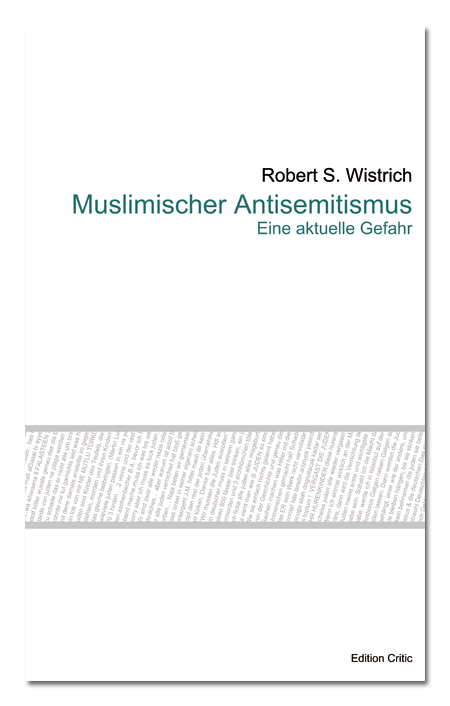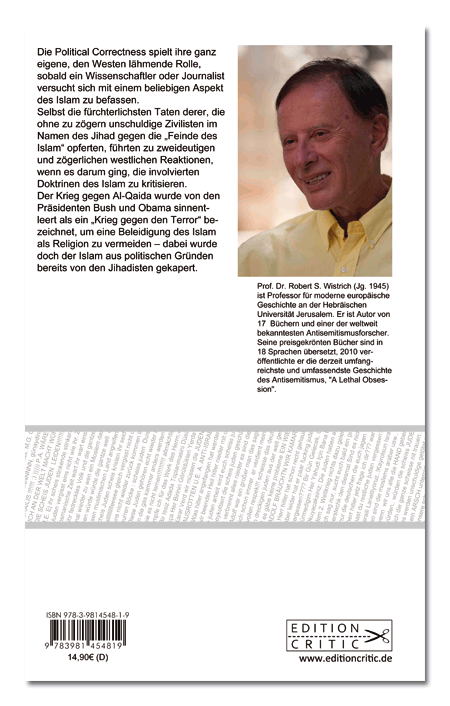Algemeiner.com, April 11, 2012
Anti-Zionist, anti-Israel, anti-Semitism is the new form of well-respected, mainstream hatred of Jews. On April 4, 2012, the leading German daily Sueddeutsche Zeitung published a poem by 1999 Nobel Prize Laureate, Günter Grass, entitled “What Must Be Said.”
At the very beginning of his text Grass portrays himself and all of “us” as possible “survivors” of a hypothetical future war. Intentionally or not, Grass uses a term reserved for Jewish survivors of the Shoah. He is portraying himself as a possible victim of Jews, projecting his own guilt onto the victims. In 1944, at the age of 17, Grass became a member of the Waffen SS, and he lied to the public until 2006 when he revealed his Nazi past. Grass writes in his poem that Iranian President Ahmadinejad is nothing but a “loudmouth,” Israel seeks to “annihilate the Iranian people,” and that he is sick of hypocrisy and wants to speak out. The crucial sentence in the poem reads: “Israel’s atomic power endangers an already fragile world peace?” This is quite possibly the most anti-Semitic sentence written by an internationally acclaimed and respected German author since the unconditional surrender of National Socialism on May 8, 1945. It may be even worse than the phrase “The Jews are our misfortune” from German historian Heinrich von Treitschke in 1879, who became infamous for the Berlin Antisemitism Dispute (Berliner Antisemitismusstreit), because Grass writes in the post-Auschwitz time. He knows the consequences of Treitschke – and repeats his singling out of Jews, though framed as anti-Netanyahu and anti-Israel resentment.
Some might argue that Jews and the state of Israel are living in a pre-Holocaust time due to the fact that Iranian President Ahmadinejad said on October 26, 2005, at a conference in Teheran about “A World without Zionism,” that Israel must be “wiped off the map.” We know of many other genocidal anti-Semitic statements from Islamist leaders, including former Iranian president Rafsanjani, leading Sunni Islamist Yusuf al-Qaradawi and al-Jazeera TV from Qatar, or Egypt TV, where preachers have praised the Holocaust.
Grass dismisses those genocidal threats and portrays Israel as the bad boy which threatens Iran with a so-called “first strike” with atomic weapons dedicated to erase the population. This is a lie and Grass well knows that it is a lie. However, he knows from his own experience during Nazi Germany that people get to love, embrace and believe lies if they are repeated, repeated, and repeated. This was the tactic of Joseph Goebbels – the big lie method.
What is not much discussed, though, is the Sueddeutsche Zeitung. This is the leading German daily with some 410,000 copies a day, only the boulevard daily Bild-Zeitung sells more copies. The Sueddeutsche has a record of anti-Israel agitation. In December 2009 it published an article by British historian Tony Judt, declaring that Jews are not a people, and have no real connection to the land of Israel. In his article Judt used many antisemitic tropes. Finally he predicted that there might be “ethnic cleansing,” perpetrated by Israel, in the future on an unprecedented level since 1945.
In January 2010 historian Wolfgang Benz published a widely discussed article, entitled “Preachers of hate with parallels” (“Hetzer mit Parallelen”). He equated Islamists and preachers of hate in the Muslim world with critics of antisemitism and Islamism. Even if we take into account that Germans share the racist views of Muslims, which is horrible and has to be fought on a daily basis, there is nothing which can be compared with state-funded terrorism from Iran, with genocidal threats from the Iranian regime since 1979, and there is nothing which can be compared with Holocaust praise on Egypt TV.
Journalists spoke out against Grass, but those supposed experts on antisemitism, like the Center for Research on Antisemitism (ZfA) at the Technical University of Berlin, are ignoring the new “Anti-Semitism Dispute” in 2012.
Dr. Clemens Heni is head of the Berlin International Center for the Study of Antisemitism (BICSA). 2008/2009 he was a Post-Doc at the Yale Initiative for the Interdisciplinary Study of Antisemitism (YIISA), Yale University, in 2011 he published his book “Schadenfreude. Islamic Studies and antisemitism in Germany after 9/11” (in German). In 2009 he spoke at Hadassah Book Club and the Congregation Beth Israel in Hartford, in 2010 he spoke at the Congregation Beth-El in Edison, New Jersey. In summer 2012 he will publish his first book in English: “Antisemitism – A specific Phenomenon. An introduction in research on antisemitism – from Ahasver, Mammon, and Moloch to Holocaust distortion, anti-Zionism and Islamic Jihad”.


